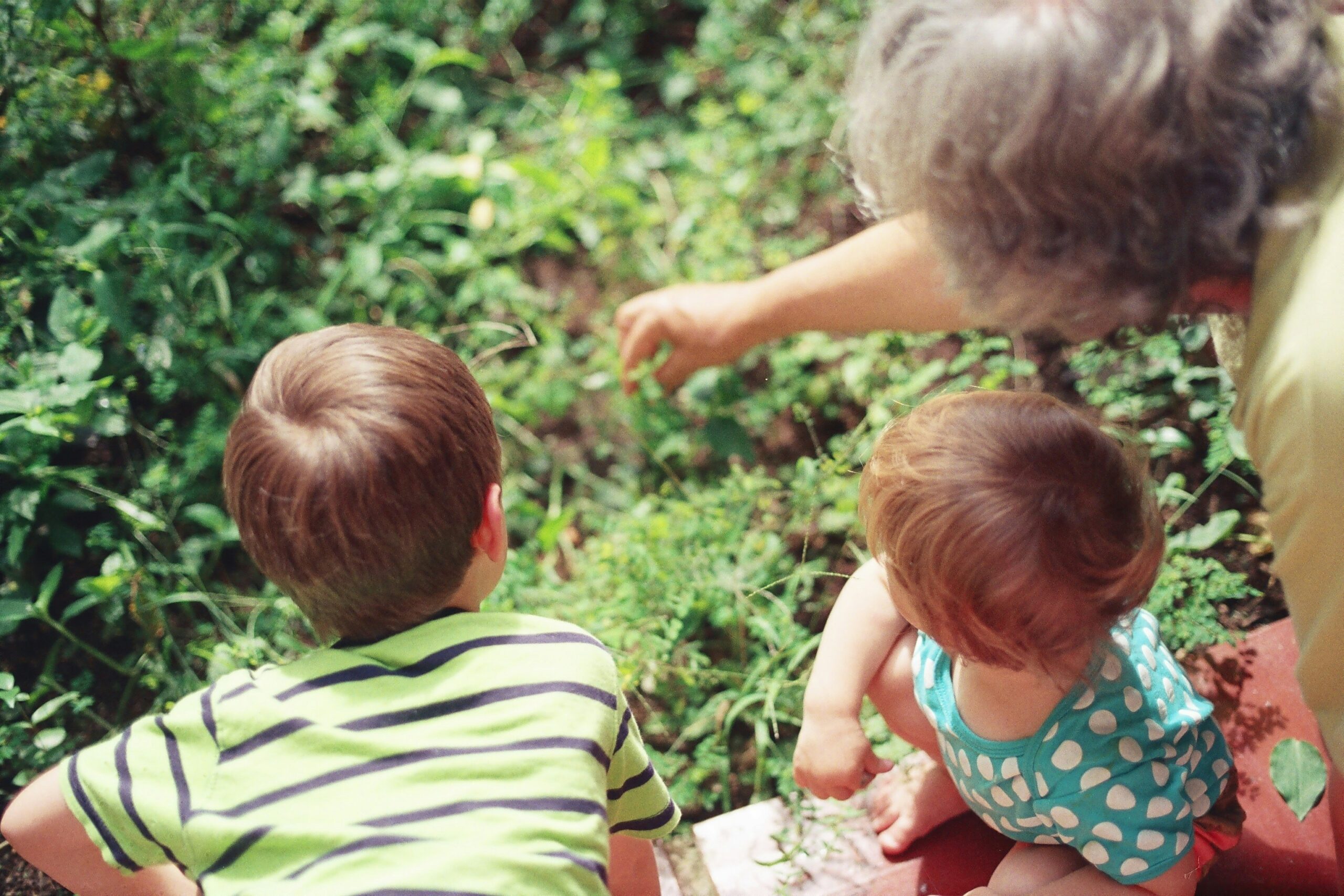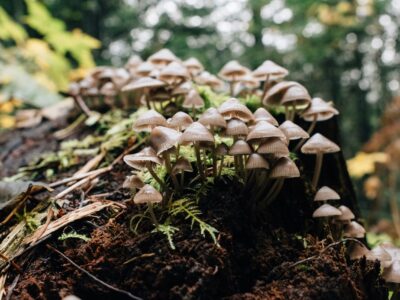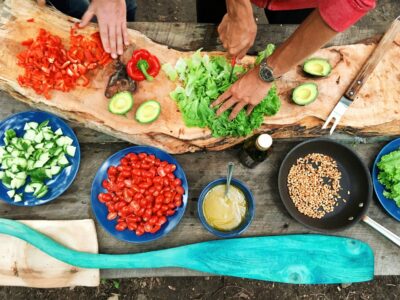My grandmother always had a bowl on her kitchen counter to collect food scraps. When I was a child, I didn’t think anything about this bowl, except perhaps how odd it was that she didn’t just do what most Americans do with their food scraps—toss them in a white plastic trash bag and leave them properly bagged to be taken to a landfill.
For years, that’s what I did, I bagged all my trash, including the recyclables, and wheeled our giant bin to the curb every week (or my husband did). And then I remembered my grandma’s bowl of food scraps, and her daily, humble ritual of taking the scraps to the woods.
That quiet practice was just one way she modeled for me and the rest of my cousins a sustainable life of simplicity and environmental stewardship. It took me forty years to do it, but now, I sort my recyclables and trash. I try to reduce the amount of stuff we send to the curb. I keep a container on my counter for food scraps, and I walk a similar path to our woods to dump the potato peels and eggshells into our compost heap.
It’s possible that your children and grandchildren will just naturally pick up on your heart for creation, but why leave it to whimsy and fate? God seems intent on using us to bless the generations of family members that follow us—just look at the promises he made to Abraham, Isaac, Jacob, and David!
We can be intentional about passing on a legacy of creation care and environmental stewardship to our kinfolk. Here are a few ways you can incorporate creation care into your legacy planning:
Plant Things That Last
When something meaningful happens in your family’s life, consider planting a tree to mark the occasion. Some families I know have planted trees every time a new family member is born and then watch their family grow with both rulers and calipers. Other families choose to purchase a living evergreen each Christmas, and after the holiday is past, plant the tree on their property. By the time their children are grown, they will have a whole forest of holiday memories.
Include Family Members in Spiritual Retreats and Creation Care Practices
Infuse your family gatherings with the things that matter the most to you. Plan your next family reunion at a spiritual retreat center, state park, or picnic pavilion, and incorporate activities that emphasize God’s love for creation and our part in caring for it… and enjoying it!
We care for the things we love, and there’s no better way to cultivate a love for creation than to put on your boots, flip flops, or sneakers, and walk in it.
Start a Creation Care Endowment, Scholarship, or Charitable Trust
You can make sure that your family’s legacy of loving the earth continues for generations by setting up a creation care endowment dedicated to supporting environmental initiatives that align with Christian values. A charitable trust can also be established to support Christian organizations and initiatives that focus on creation care.
You can also establish faith-inspired scholarships to support students who are pursuing education in fields related to environmental science, sustainability, or creation care. The great thing about scholarship programs is that you can be very specific about what you are willing to fund. This allows you to select recipients who want to integrate their faith into their academic pursuits, mirroring your same desire to connect spirituality and environmental responsibility.
Invest in Eco-Friendly Family Properties
If you have a favorite part of the country you love to visit and the resources to make it happen, consider investing in land for the purposes of conservation and recreation. You could build a home designed with sustainable construction in mind and designate this property as a place for family retreats. It could be the foundation of many happy and meaningful memories for generations of family members!
Develop a Green Investment Portfolio
Talk with your financial planner about how you can diversify your investment portfolio to include companies and funds that are committed to environmentally responsible practices. This is a powerful way to leave a legacy of renewable energy, ample water, and clean air for the future of our planet.
Host Creation Care Philanthropic Events
If you give me a minute, I can remember every charitable event and large family gathering that benefited a cause we collectively cared about. This intentional giving and gathering fuses family bonds together and communicates to younger generations what really matters to you.
Instead of exchanging gifts at the holidays, invite family members to contribute toward a specific environmental project or cause. Incorporate a service activity that is meaningful for everyone, like cleaning up a stream near the family’s homestead or picking up trash alongside the road that leads to grandma’s house.
Plan for a Sustainable Burial
Many adults are now planning out their funeral arrangements so that it’s very clear for their descendants what they want, even after they’re no longer able to communicate those desires. Traditional funerals are expensive and not very sustainable.
Even though in the 20th century, according to this Washington Post article, 95% of Americans followed the same tradition of embalming, viewing, and burial, this trend has started to change. Cremation and coffin burials account for 94% of all funerals in the U.S., and they are also the worst for the environment.
Many more Americans are seeking out greener ways to approach death, and you can, too. You’ll need to investigate what options are available to you, because they differ state-to-state, but options like water cremation, human composting, and green burials are all possibilities that have minimal or even positive environmental impact.
Incorporate Creation Care into Your Estate Planning
You can extend your legacy into your estate planning, especially if you own a substantial amount of land. Clearly articulate your commitment to creation care in your family’s legal and financial documents, and spell out how you want your land to be managed after you’re gone.
This can include sustainable land management practices and the preservation of natural habitats, so that the land you love and the creation you care about will be around for your family to enjoy and appreciate for years to come.
I want to honor my grandmother’s legacy and build upon her love of the land, so that my family and their families can look back upon my life and be inspired by my love for creation, too. Let’s leave a legacy that will write the most inspiring story we can imagine for them to share throughout the generations.





 Copyright
2024
Root and Vine
Copyright
2024
Root and Vine